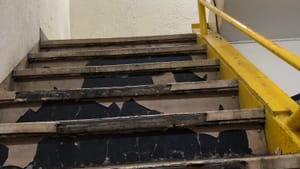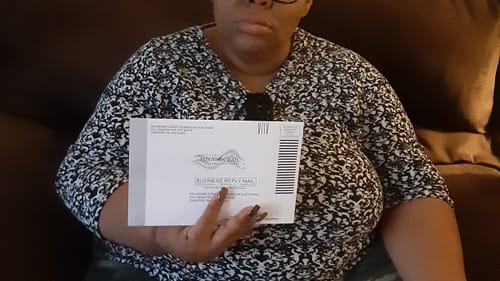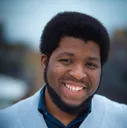Stay in the Loop
BSR publishes on a weekly schedule, with an email newsletter every Wednesday and Thursday morning. There’s no paywall, and subscribing is always free.
'Witnessing the Impact' of Covid-19 for disabled people in Philadelphia

How we remember the Covid-19 pandemic depends not only on what stories we tell, and how, but who is telling those stories. To that end, BSR is teaming up with the Witnessing the Impact of COVID-19 in Disabled People’s Lives archive project, which elevates the personal and practical stories of disabled people during the pandemic—people who are often ignored or overlooked in the broader crisis.
Meet the Impact
Witnessing the Impact, funded by a Waterhouse Family Institute research grant and led by Immaculata University assistant professor Kelly C. George, documents and contextualizes personal stories at the local level here in the Greater Philadelphia area. Project leaders are partnering with local media outlets, including BSR, who are paying disabled writers with grant funds to produce these stories, and publishing them on our platform.
There are two parts to the project: the media partnership BSR is joining, and We Will Talk About These Days, a website full of interviews about life in the pandemic for disabled people. Produced through Temple University’s Institute on Disabilities, it’s free to access.
While some outlets and resources do bring light to these stories, they’re typically not on a hyperlocal scale, and while there is plenty of good work happening, some publications rely on ableist language without knowing it, or may minimize or exploit disability narratives. Disabled people of all ages and backgrounds are part of the Philadelphia community: living, working, and going to school. Witnessing the Impact shares these stories in this community media collaboration, and preserves them for the future.
BSR’s Witnessing the Impact stories will run in February and March. The project’s ultimate goal is an ADA-compliant public website with archived interviews, transcripts, photos, and more to contextualize the experiences of disabled people in the Greater Philadelphia area during the pandemic. BSR’s contributions will be included in that collection.

The barriers
Disabled people face a reality that is often invisible to able-bodied people, especially during a pandemic. People who need personal assistance may not be able to practice physical distancing, and the risk is exacerbated when caretakers don’t have access to personal protective equipment (PPE). Some people with disabilities or chronic illness may have a higher risk of contracting Covid, experience more severe symptoms and complications, and face increased risk of death. Discrimination in healthcare and the workplace compounds the crisis.
Many of these problems exist because facilities and businesses are not designed with accessibility in mind. Often, ramps are too narrow or buildings are only partially accessible, preventing wheelchair users from getting to where they need to go in the first place.
Many employers aren’t hiring disabled people, either, and remote work isn’t changing that. The unemployment rate for workers with a disability rose from 7.8 percent in January 2020 to 12.5 percent in September 2020, according to the US Department of Labor. In a study by the US National Library of Medicine, employers express worries like the “cost of providing reasonable accommodations,” not knowing “how to handle the needs of a worker with a disability,” and fearing increased health insurance costs.
In short, disabled people experience significant exclusion. Organizations aren’t fully integrating accessibility and ease of use: few know how to, and most choose not to. If disabled people aren’t included in equitable spaces, then the community misses out on those voices. At a critical moment in time, these narratives will be lost and the lack of inclusion will continue to disappoint, discourage, and discriminate against a large part of our communities. Elevating these stories helps dismantle the stigmas around disabilities, illuminates needed perspectives, and proposes solutions to systemic ableism. But it’s only the beginning.
An exciting start
While BSR strives to integrate the narrative, the advocacy, and the language into its platform, there’s still much work to be done. Through Witnessing the Impact, we at BSR want to continue normalizing and destigmatizing conversations around accessibility, and speaking up for and with disabled people on our team and in our readership as we seek more than simply access, but ease of use, empathy, and better resolutions and resources to include and build equity for disabled people. We’re proud to join Witnessing the Impact as one way to start.
Image Description 1: A low-angled shot of a set of stairs leading to only more stairs. There are two small signs on sheets of white paper on the wall at the top of the stairs. One reads 'The Presented' and the other reads 'Fires' in all caps with an arrow pointing towards a fire detector.
Image Description 2: Dorothy Briscoe, a Black woman, sits on her couch while holding a mail-in ballot envelope.
Sign up for our newsletter
All of the week's new articles, all in one place. Sign up for the free weekly BSR newsletters, and don't miss a conversation.

 Kyle V. Hiller
Kyle V. Hiller